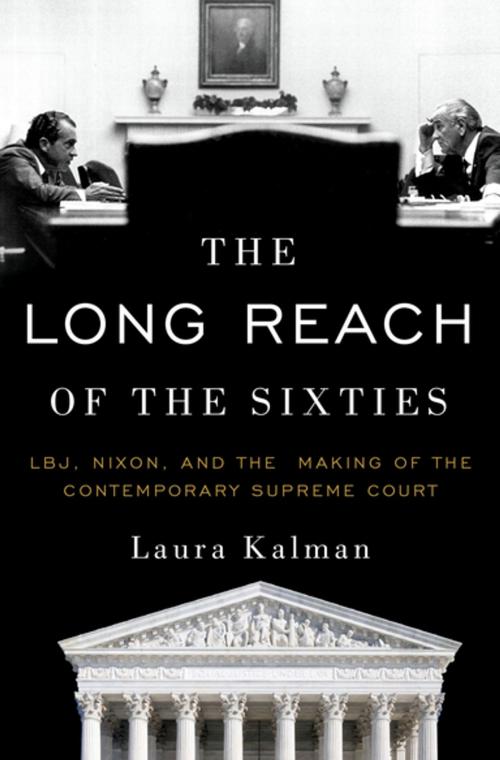The Long Reach of the Sixties
LBJ, Nixon, and the Making of the Contemporary Supreme Court
Nonfiction, Reference & Language, Law, Legal History, History, Americas, United States, 20th Century| Author: | Laura Kalman | ISBN: | 9780199967773 |
| Publisher: | Oxford University Press | Publication: | April 5, 2017 |
| Imprint: | Oxford University Press | Language: | English |
| Author: | Laura Kalman |
| ISBN: | 9780199967773 |
| Publisher: | Oxford University Press |
| Publication: | April 5, 2017 |
| Imprint: | Oxford University Press |
| Language: | English |
The Warren Court of the 1950s and 1960s was the most liberal in American history. Yet within a few short years, new appointments redirected the Court in a more conservative direction, a trend that continued for decades. However, even after Warren retired and the makeup of the court changed, his Court cast a shadow that extends to our own era. In The Long Reach of the Sixties, Laura Kalman focuses on the late 1960s and early 1970s, when Presidents Johnson and Nixon attempted to dominate the Court and alter its course. Using newly released--and consistently entertaining--recordings of Lyndon Johnson's and Richard Nixon's telephone conversations, she roots their efforts to mold the Court in their desire to protect their Presidencies. The fierce ideological battles--between the executive, legislative, and judicial branches--that ensued transformed the meaning of the Warren Court in American memory. Despite the fact that the Court's decisions generally reflected public opinion, the surrounding debate calcified the image of the Warren Court as activist and liberal. Abe Fortas's embarrassing fall and Nixon's campaign against liberal justices helped make the term "activist Warren Court" totemic for liberals and conservatives alike. The fear of a liberal court has changed the appointment process forever, Kalman argues. Drawing from sources in the Ford, Reagan, Bush I, and Clinton presidential libraries, as well as the justices' papers, she shows how the desire to avoid another Warren Court has politicized appointments by an order of magnitude. Among other things, presidents now almost never nominate politicians as Supreme Court justices (another response to Warren, who had been the governor of California). Sophisticated, lively, and attuned to the ironies of history, The Long Reach of the Sixties is essential reading for all students of the modern Court and U.S. political history.
The Warren Court of the 1950s and 1960s was the most liberal in American history. Yet within a few short years, new appointments redirected the Court in a more conservative direction, a trend that continued for decades. However, even after Warren retired and the makeup of the court changed, his Court cast a shadow that extends to our own era. In The Long Reach of the Sixties, Laura Kalman focuses on the late 1960s and early 1970s, when Presidents Johnson and Nixon attempted to dominate the Court and alter its course. Using newly released--and consistently entertaining--recordings of Lyndon Johnson's and Richard Nixon's telephone conversations, she roots their efforts to mold the Court in their desire to protect their Presidencies. The fierce ideological battles--between the executive, legislative, and judicial branches--that ensued transformed the meaning of the Warren Court in American memory. Despite the fact that the Court's decisions generally reflected public opinion, the surrounding debate calcified the image of the Warren Court as activist and liberal. Abe Fortas's embarrassing fall and Nixon's campaign against liberal justices helped make the term "activist Warren Court" totemic for liberals and conservatives alike. The fear of a liberal court has changed the appointment process forever, Kalman argues. Drawing from sources in the Ford, Reagan, Bush I, and Clinton presidential libraries, as well as the justices' papers, she shows how the desire to avoid another Warren Court has politicized appointments by an order of magnitude. Among other things, presidents now almost never nominate politicians as Supreme Court justices (another response to Warren, who had been the governor of California). Sophisticated, lively, and attuned to the ironies of history, The Long Reach of the Sixties is essential reading for all students of the modern Court and U.S. political history.















